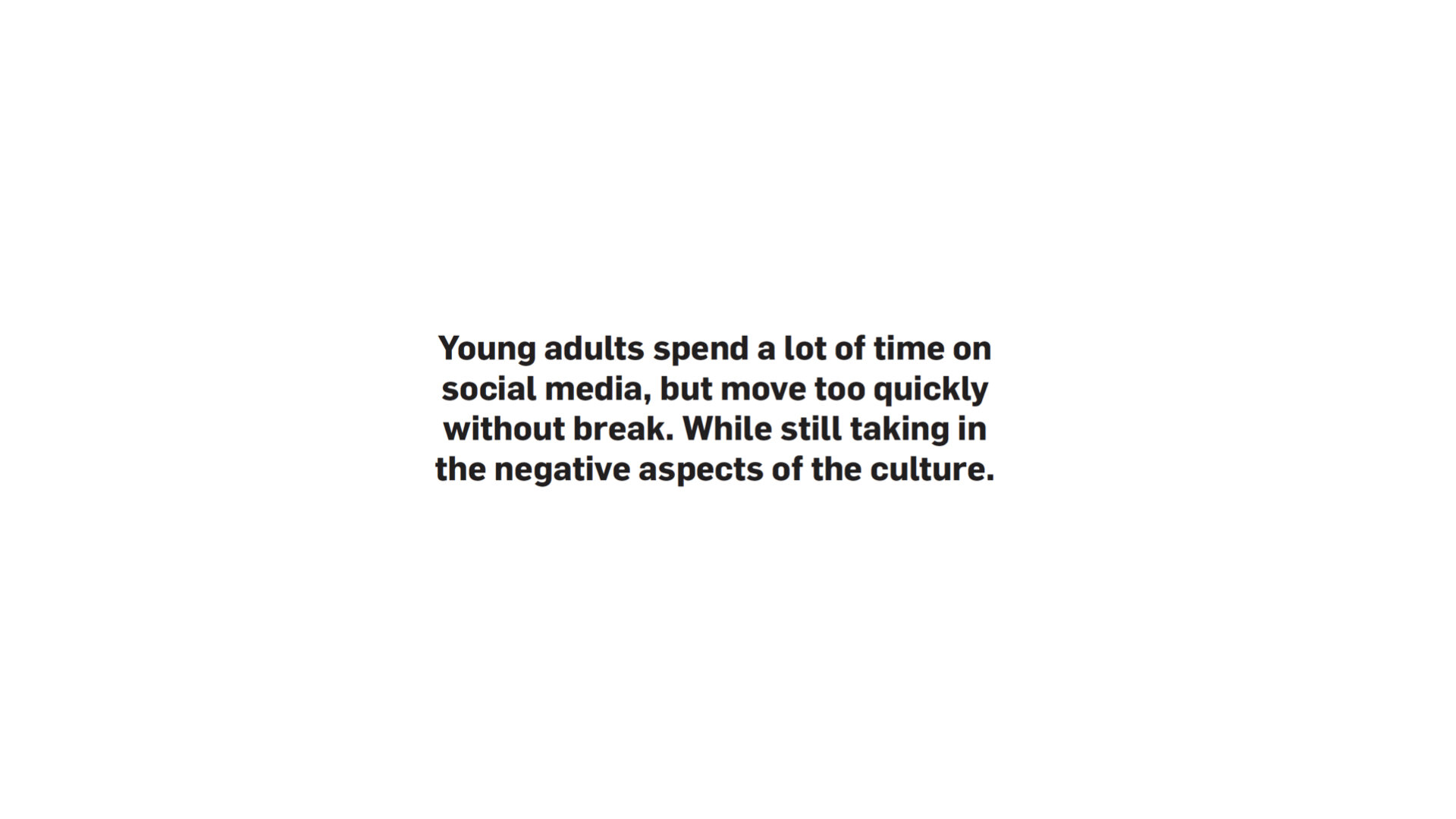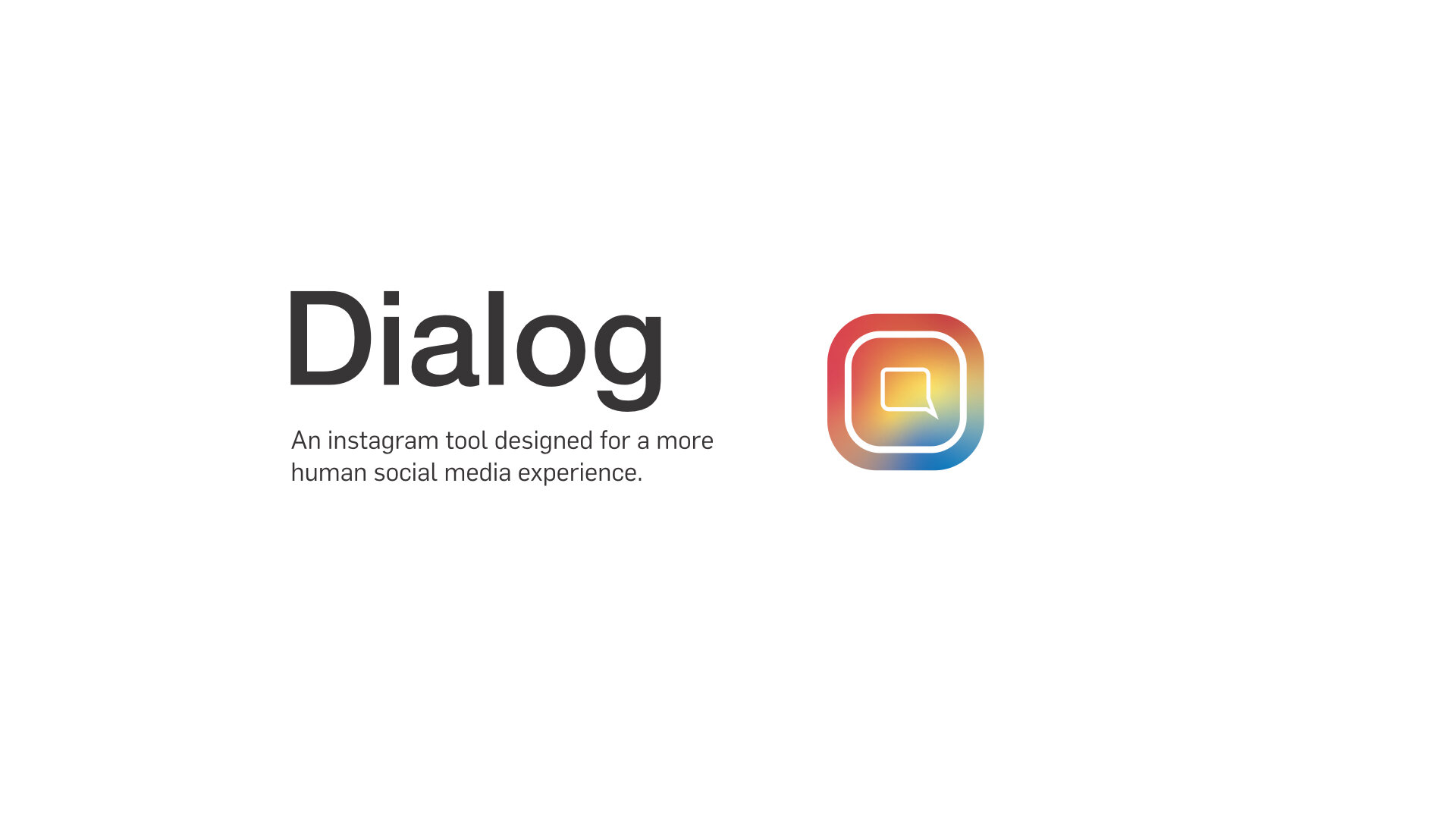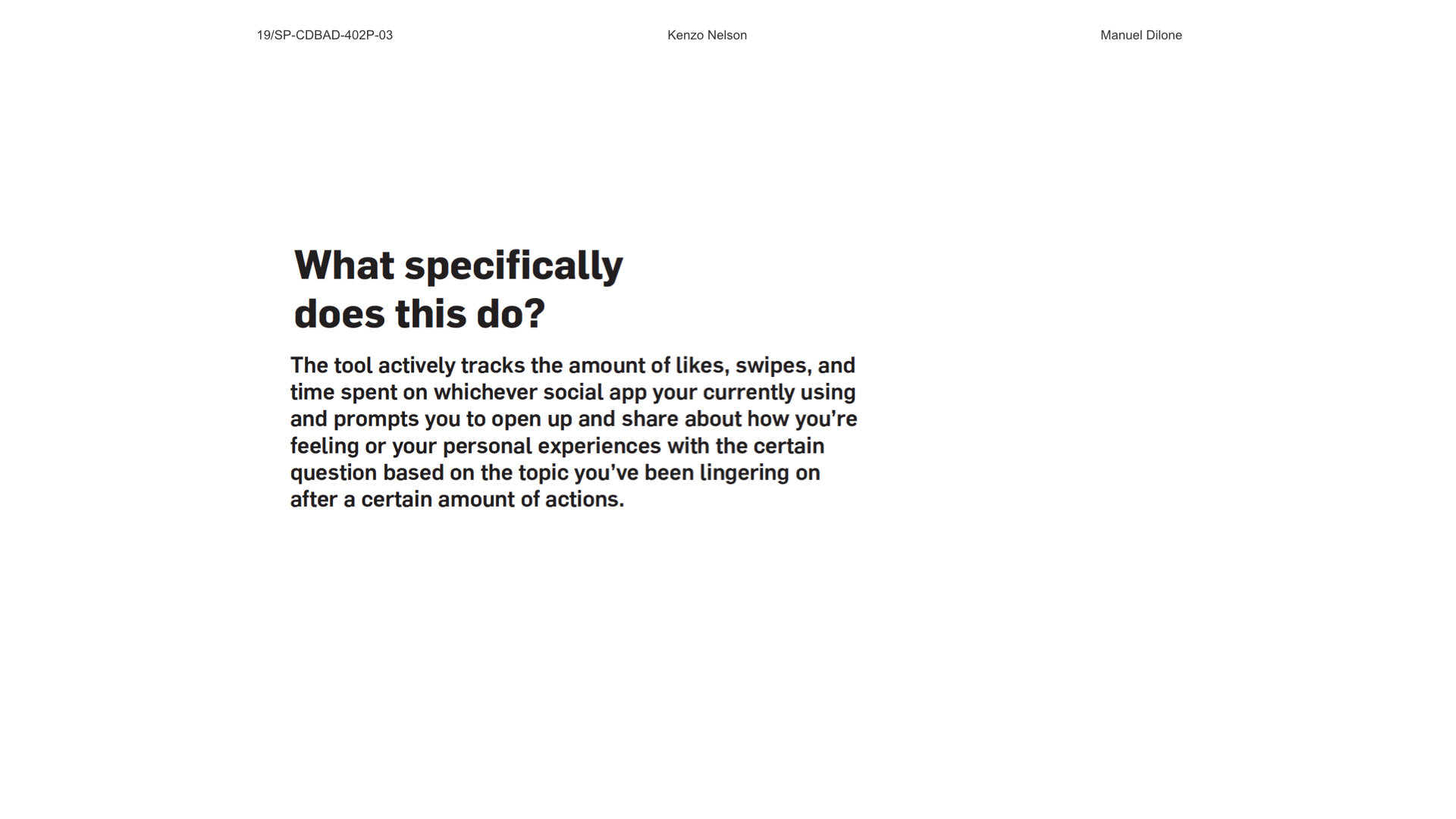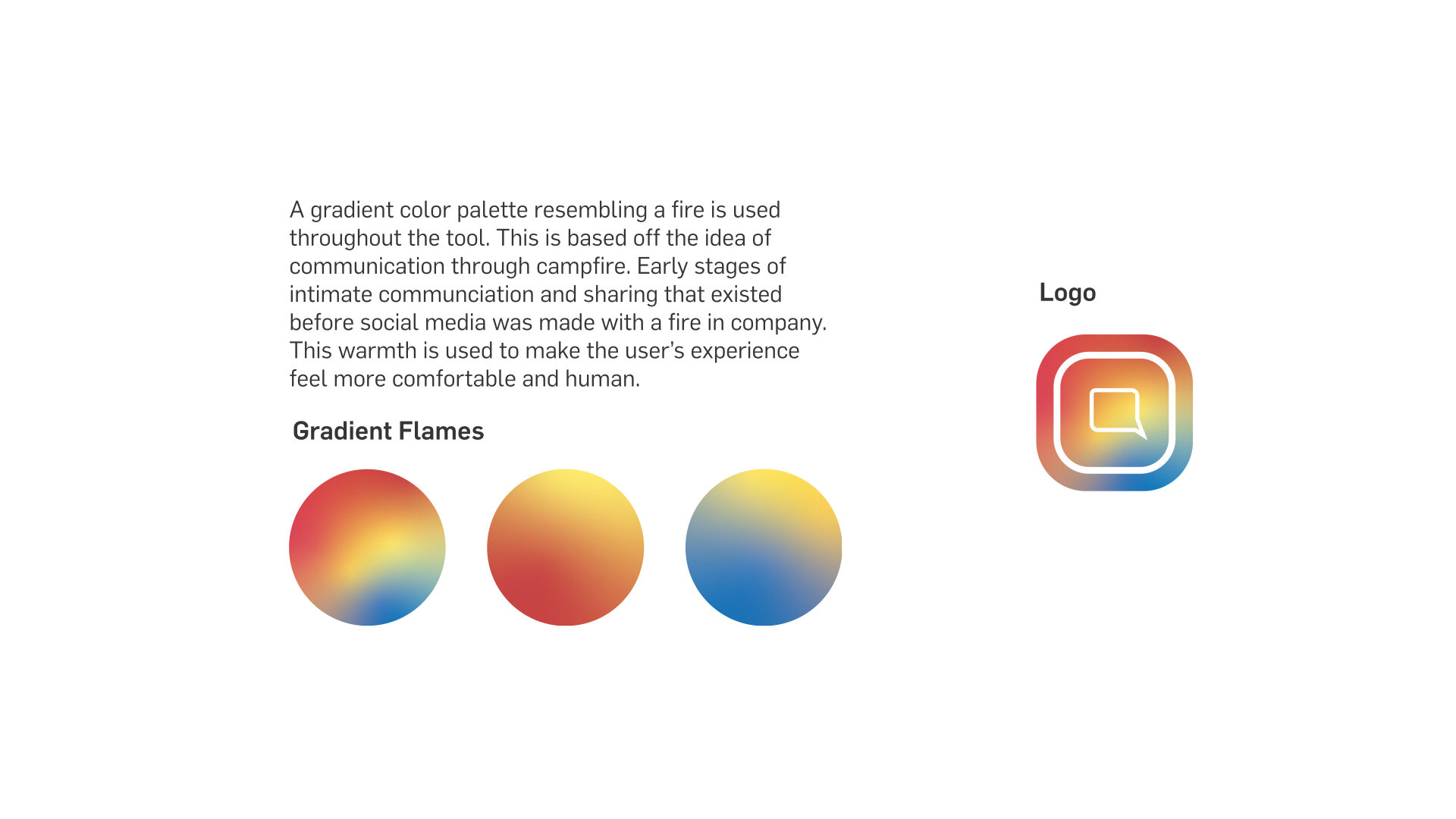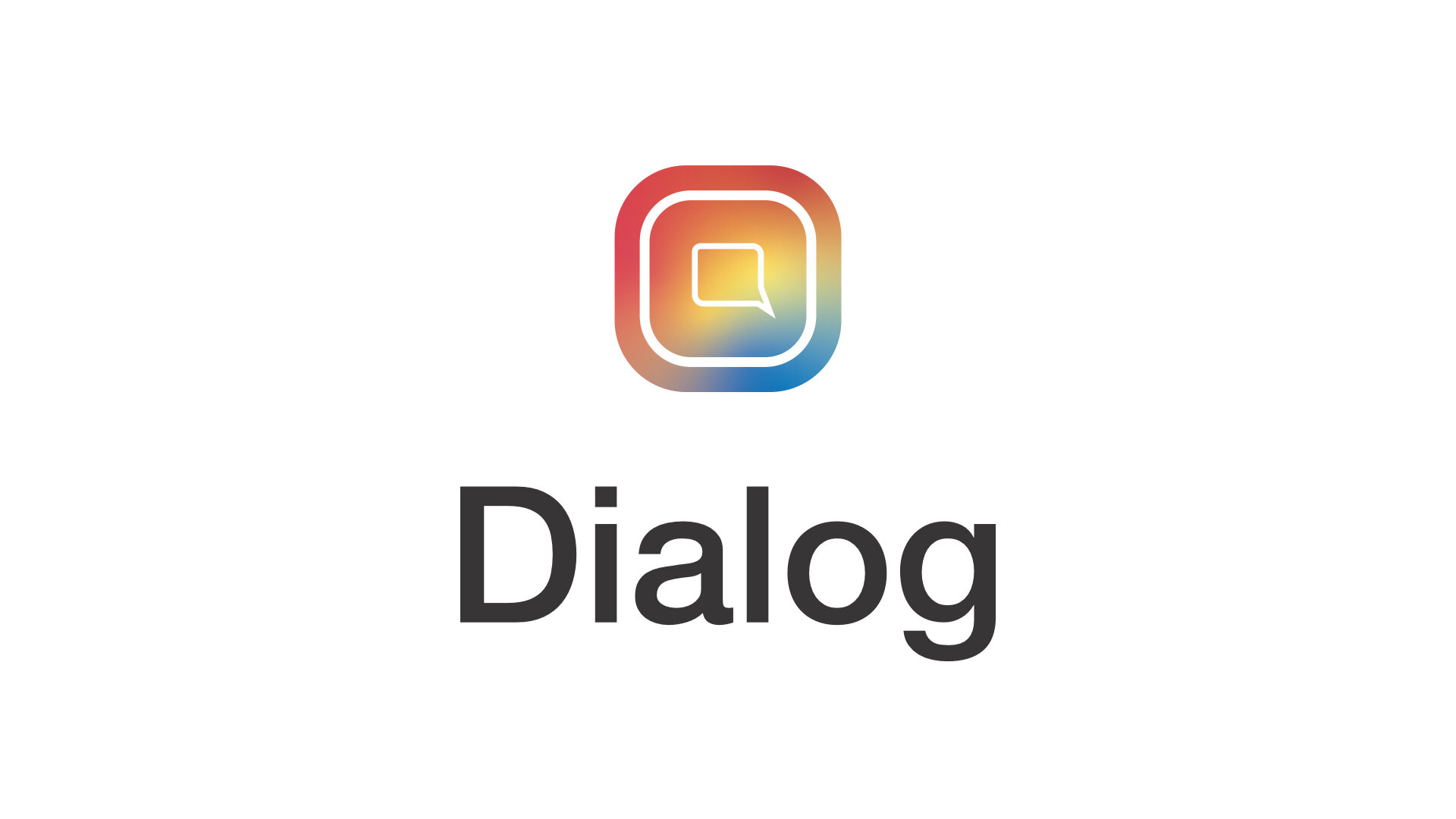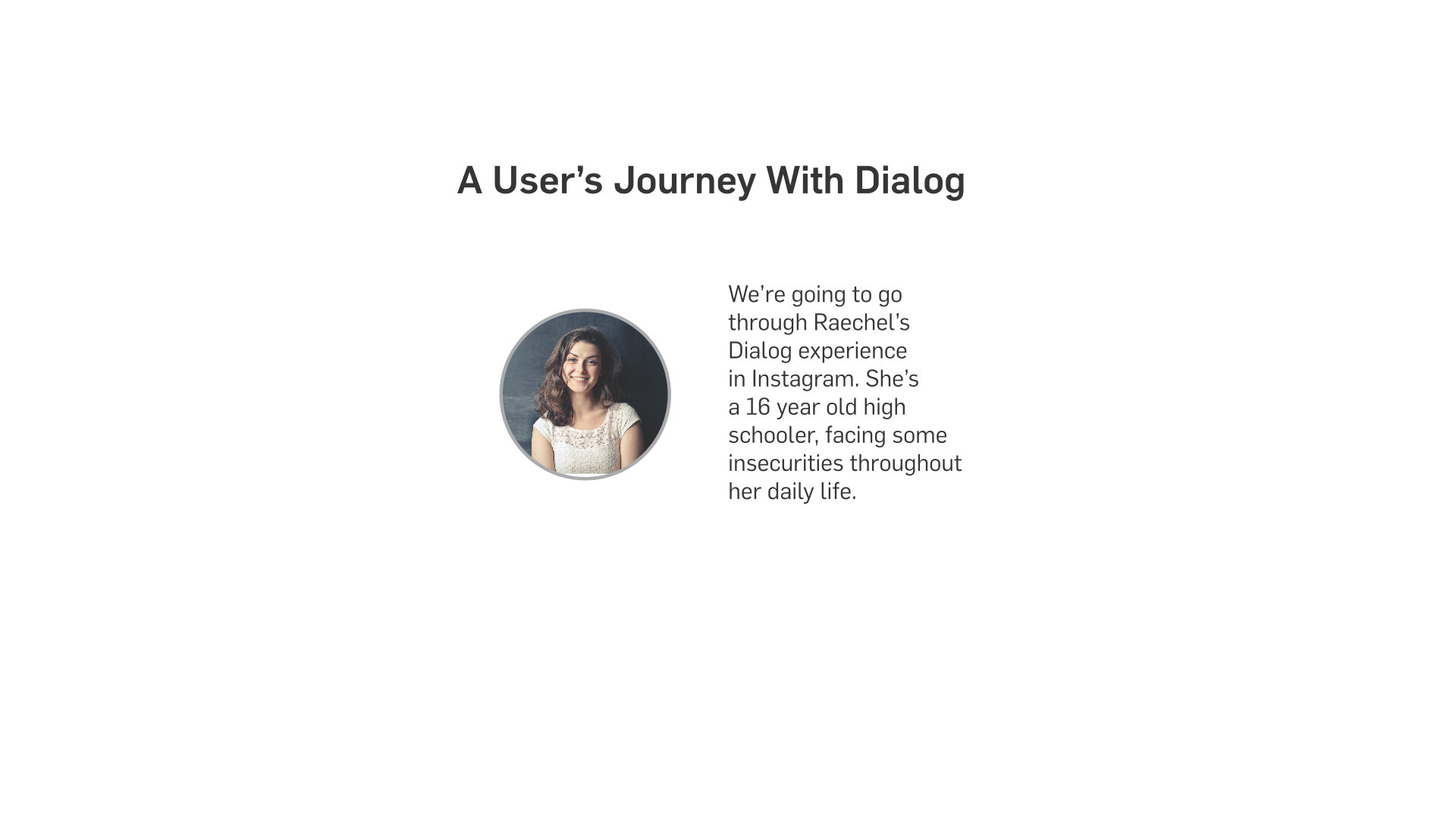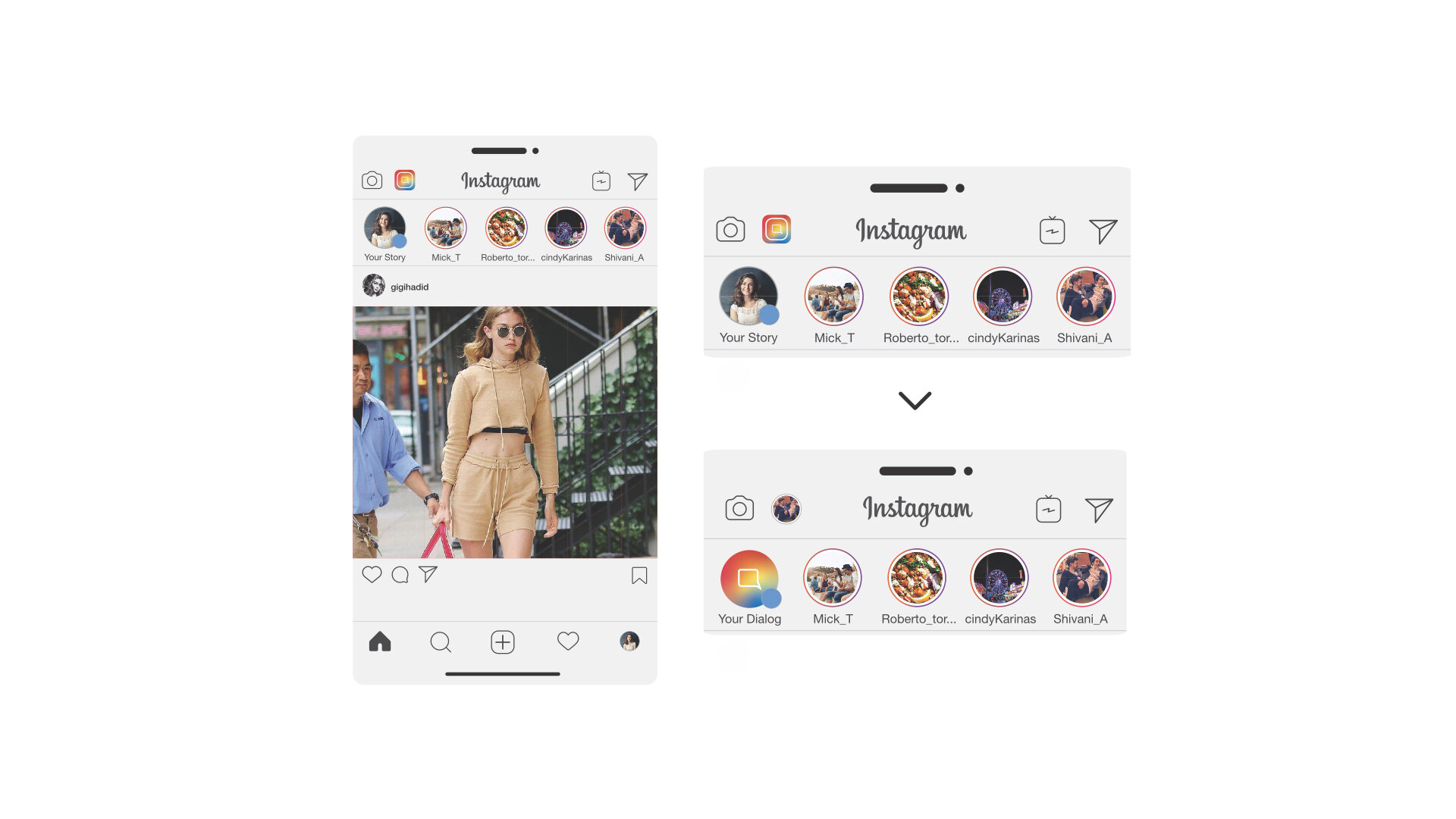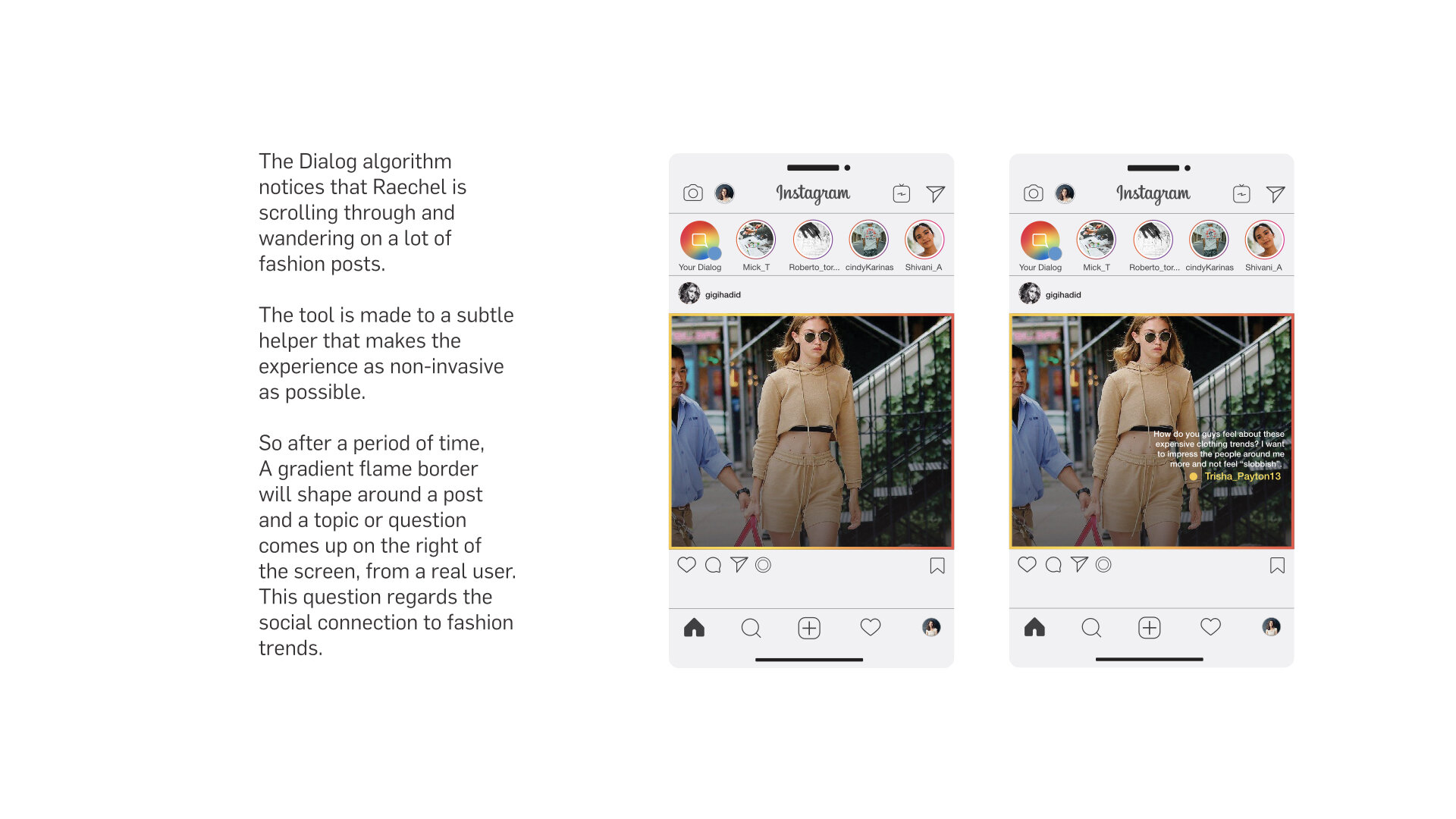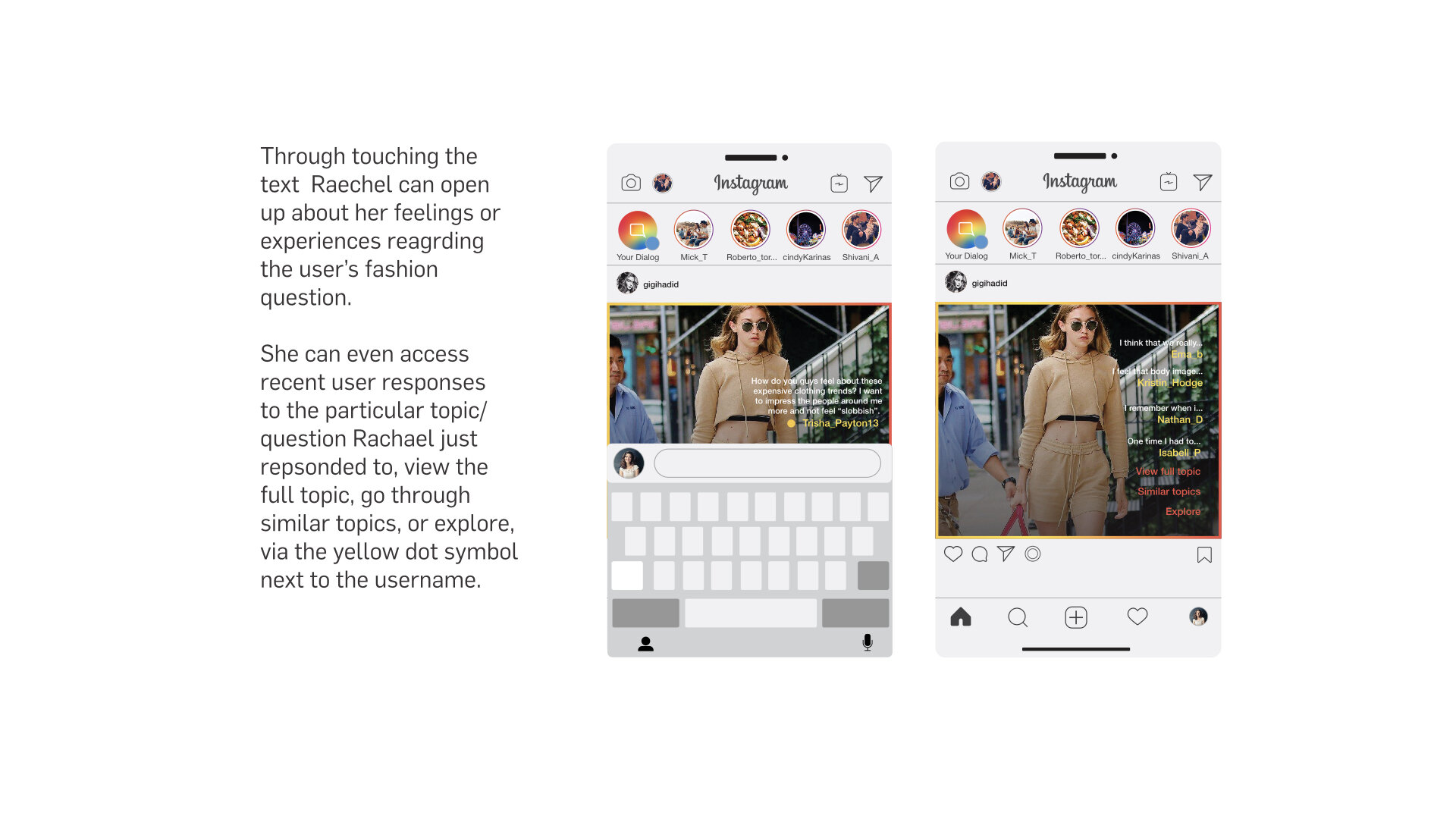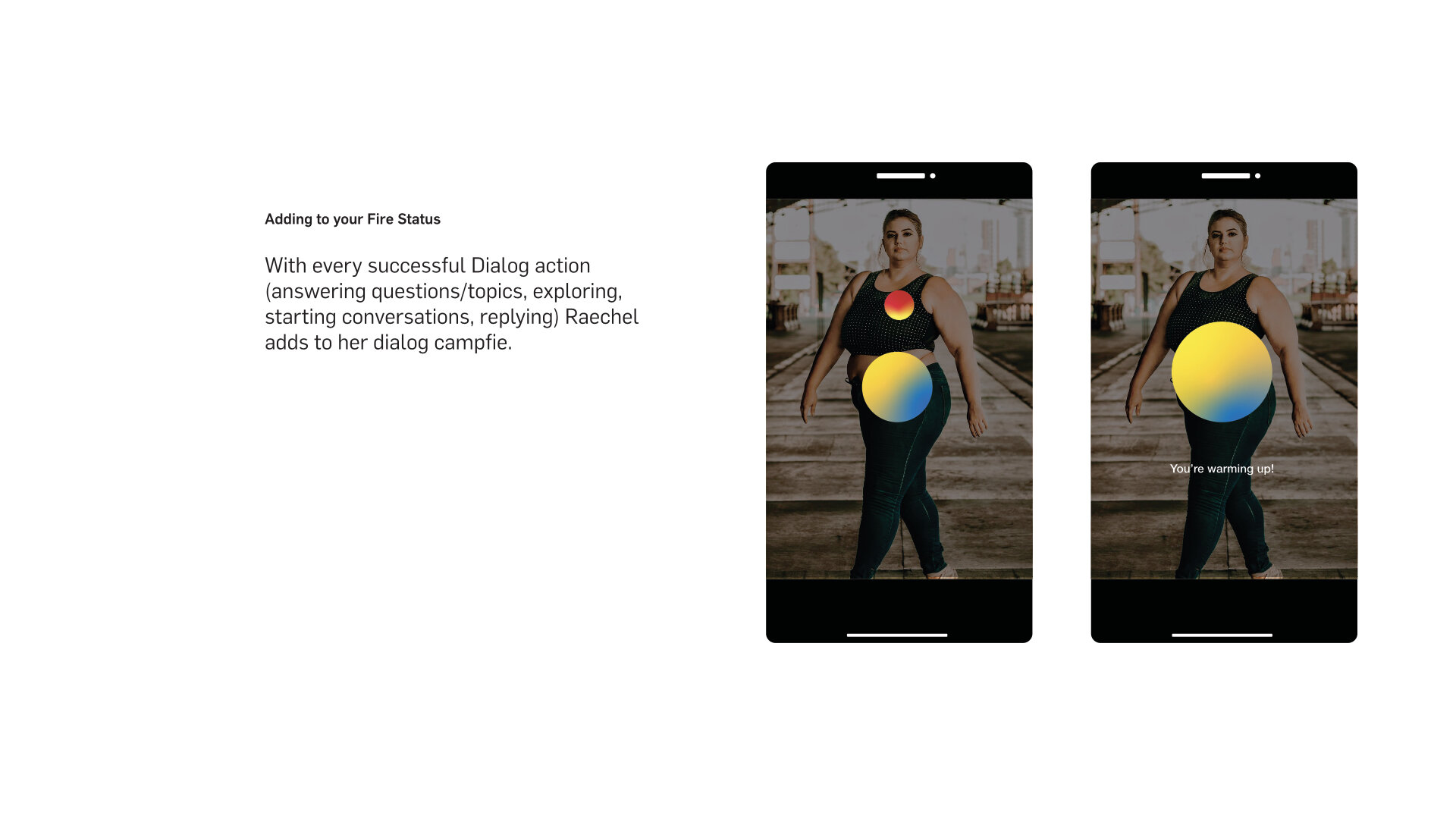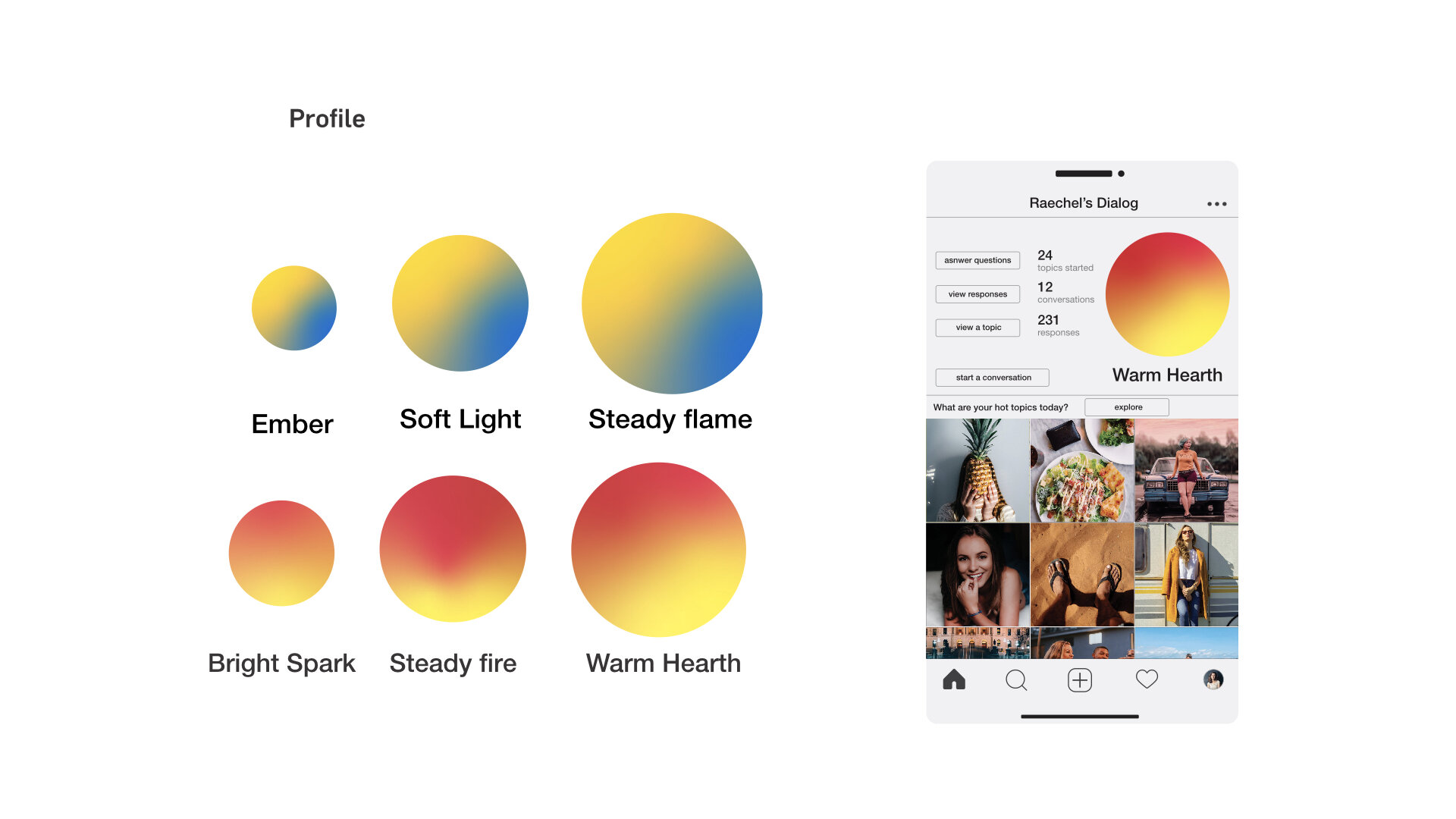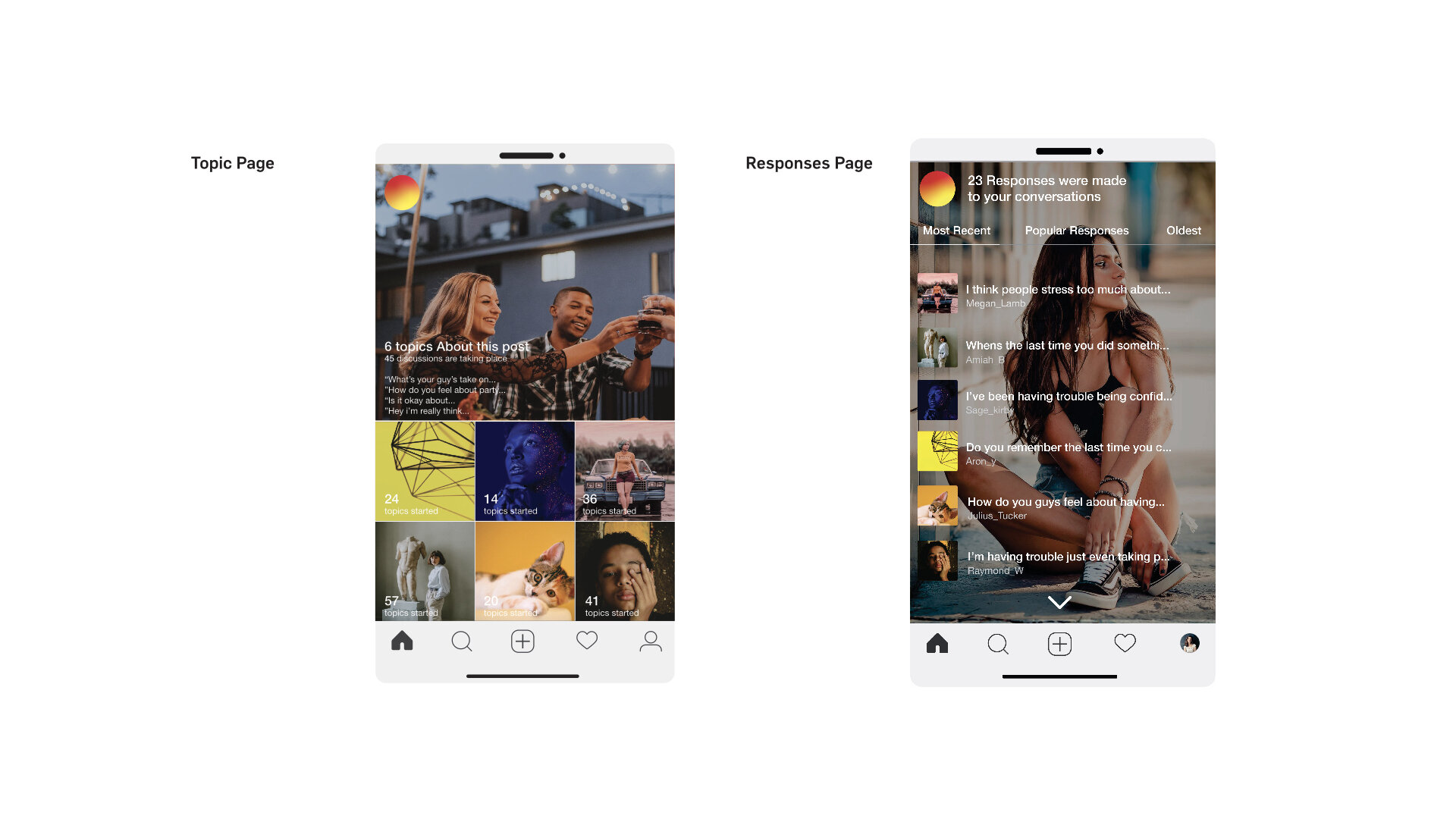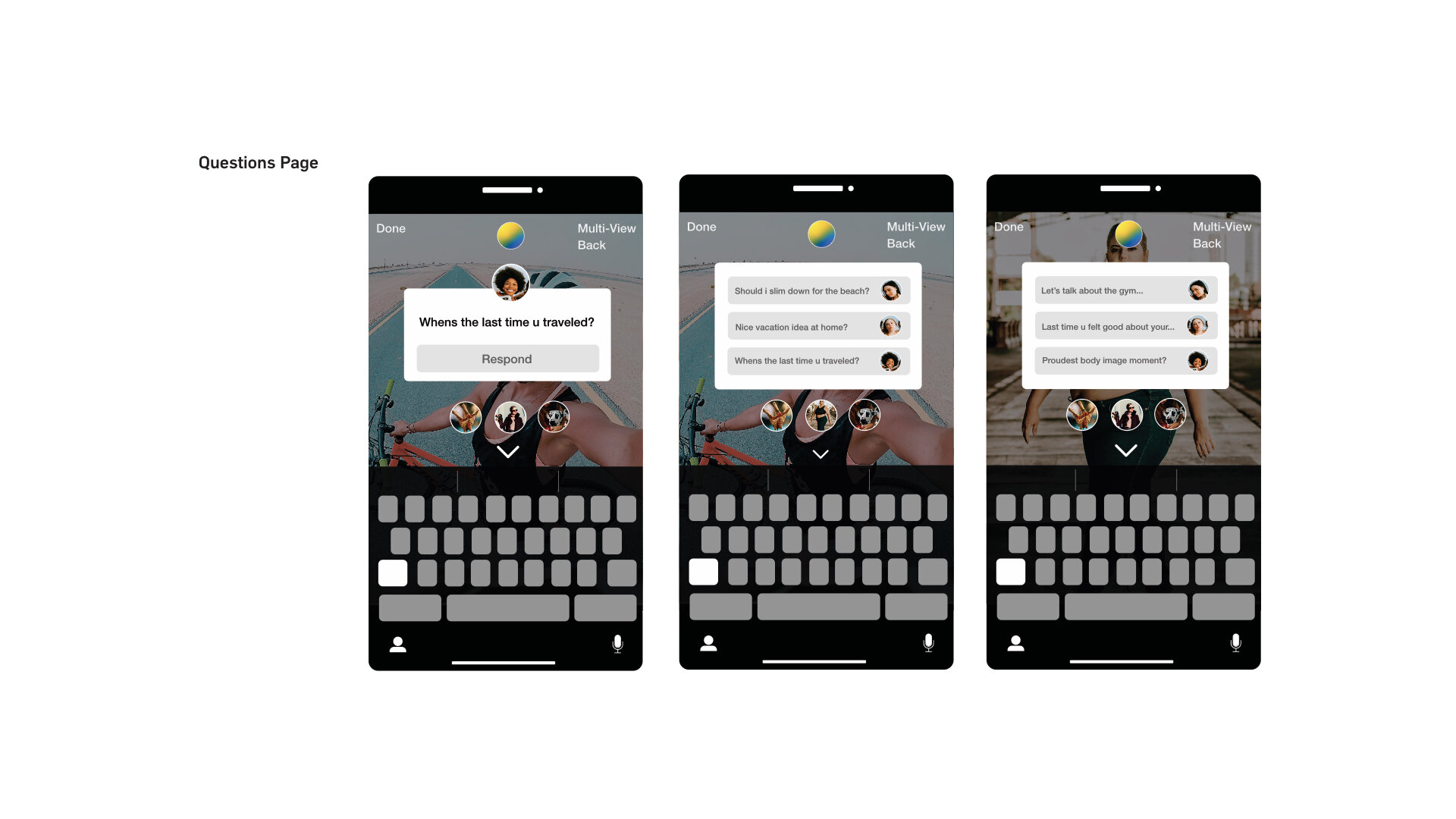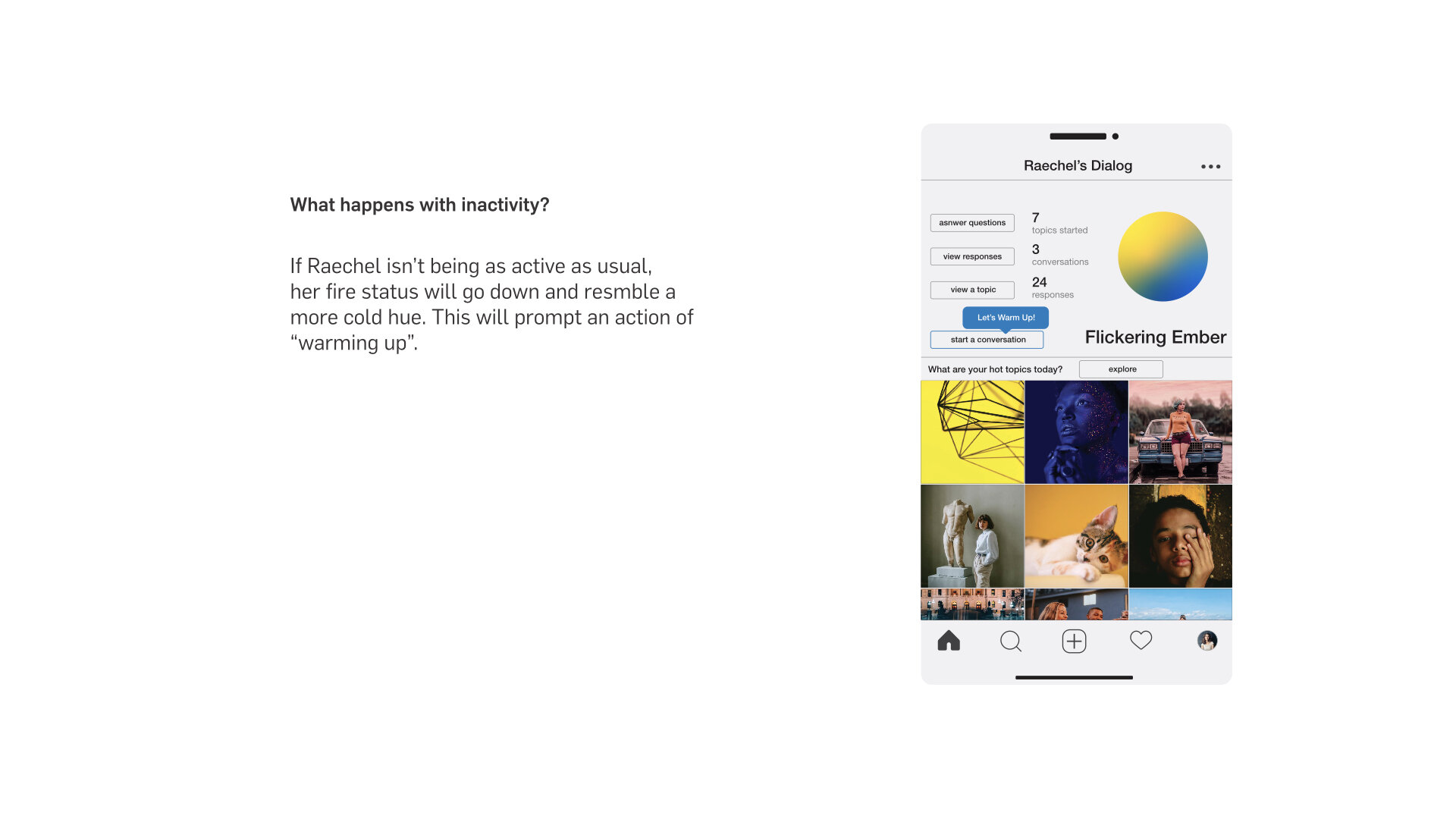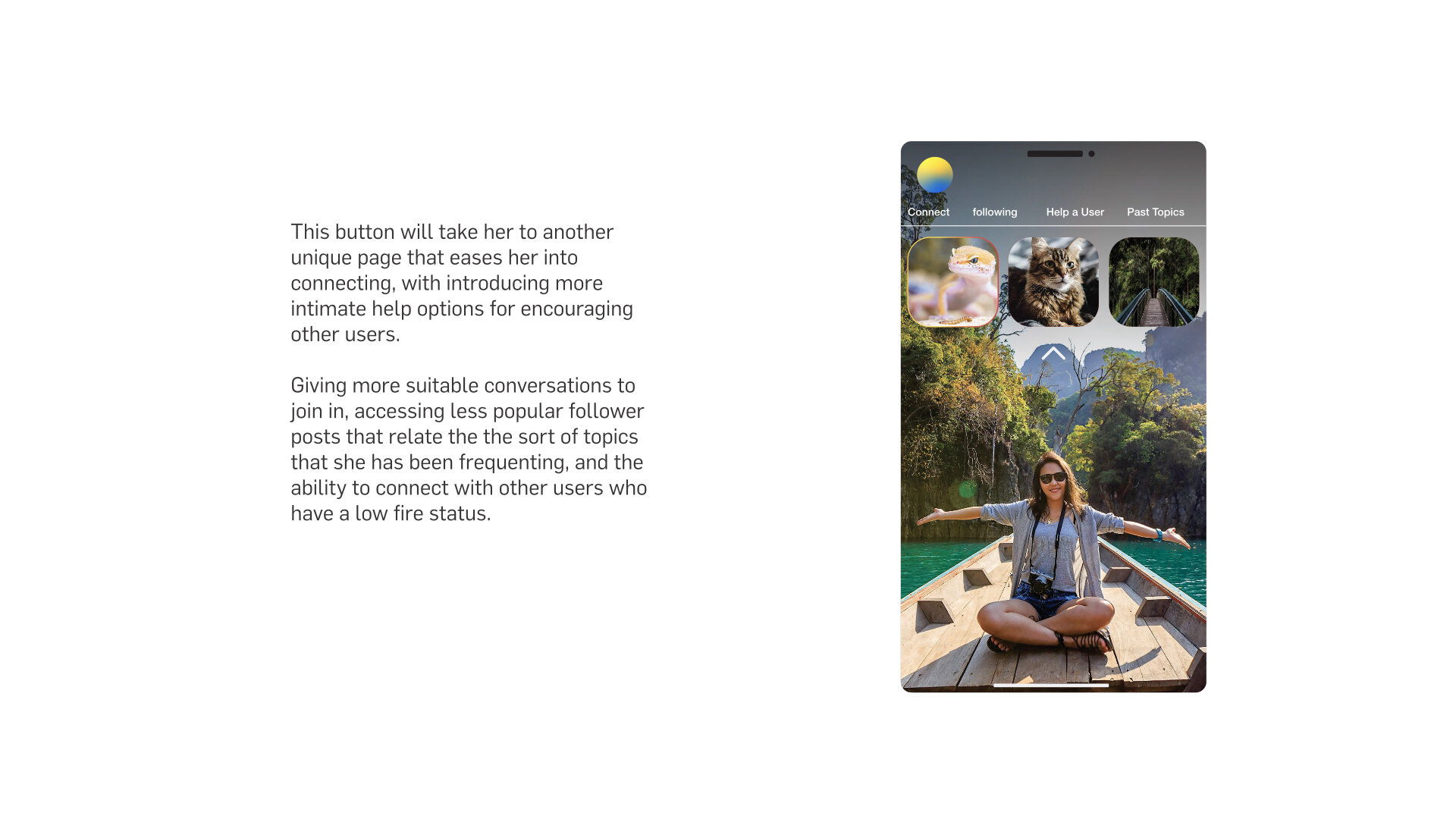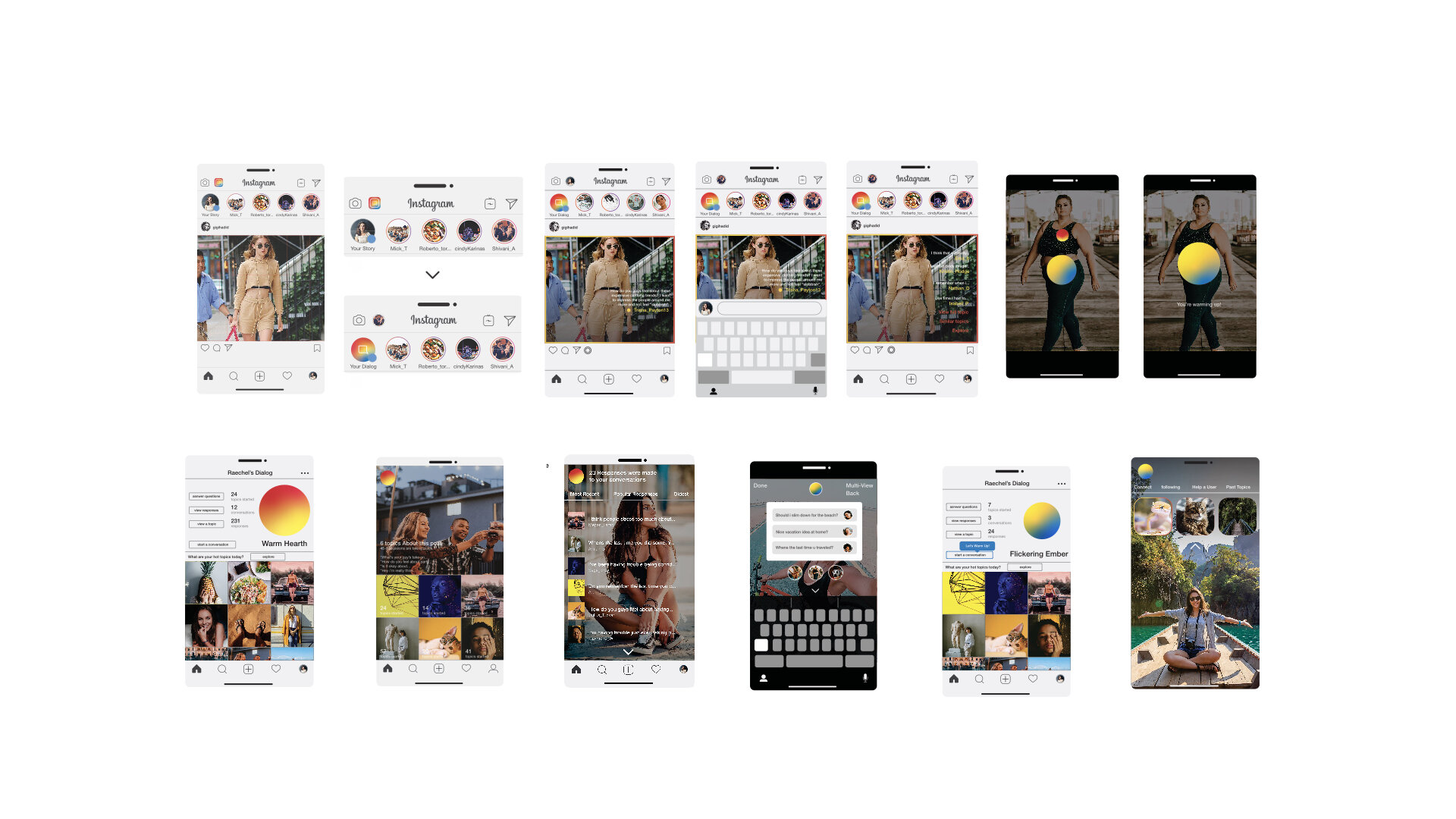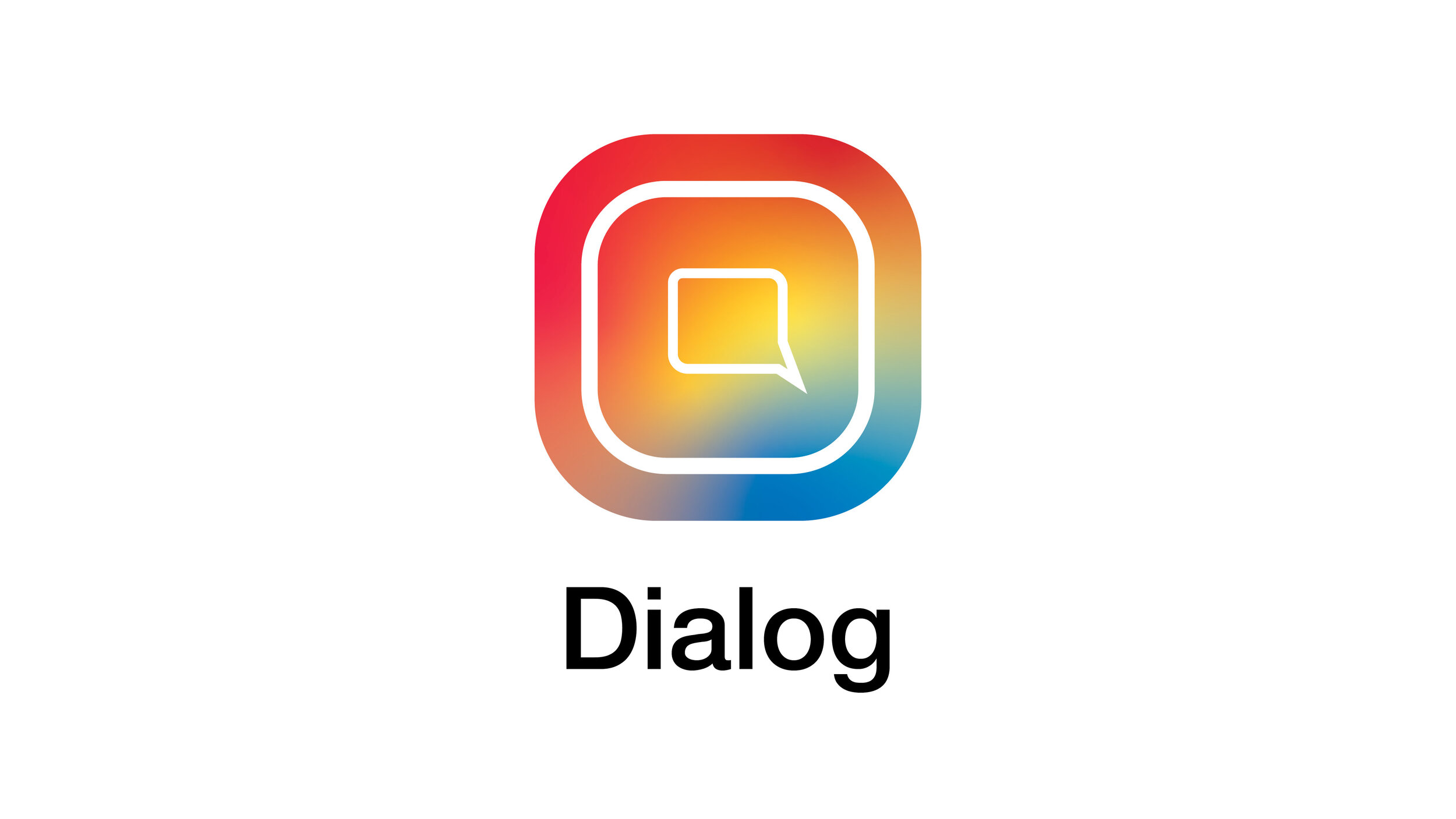Dialog
A Conceptual Social Media Tool
Made to work with Instagram, this downloadable tool uses a hypothetical algorithm to provide a more positive social media experience. Easing user mindsets of young teens and humanizing the curative nature that floods this popular user platform. All while still making more personal connections.
Humanizing social media through one of it's most popular outlets.
Social media has done a lot of good in terms of bringing people together, letting voices be heard, and connecting people worldwide. Though we cannot ignore the issue, that it has also been a leading cause of depression, anxiety, loss or sleep, body dysmorphia, and F.O.MO. for young teens. Especially teen girls.
The curative nature of Instagram has unconsciously led teens to create this high standard, social bar, that is hard to achieve for most people. Dialog, slows down the user experience and reveals the more human backstories behind popular Instagram topics and posts. Getting people to open up about themselves and build more intimate connections.
Accessibility
Through a new chat bubble icon located at the top of your screen, next to the camera button, you can switch out your stories panel with a new Dialog panel. You can see how your friends are interacting and opening up with the community daily, through their Dialog stories buttons. There's a gradient icon shortcut where you can access your personal tool profile with ease.
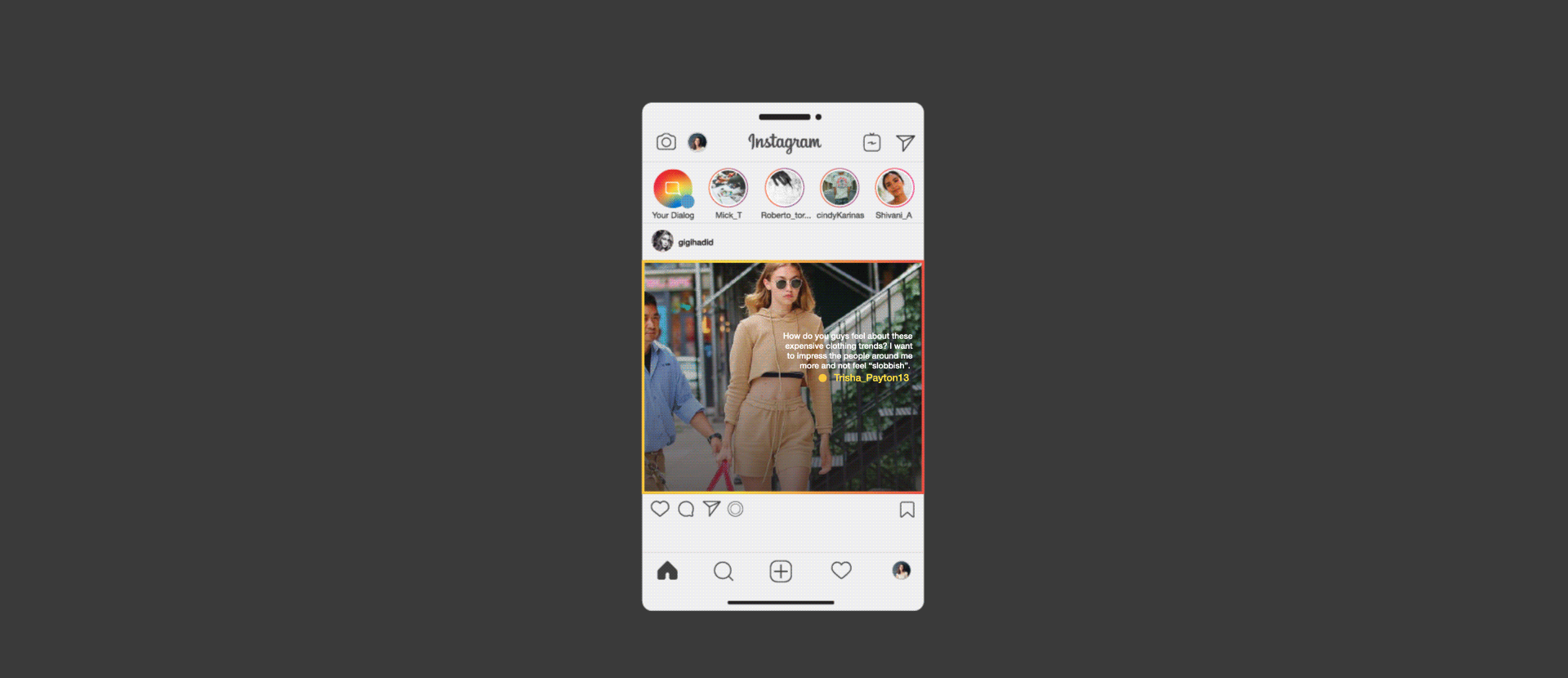
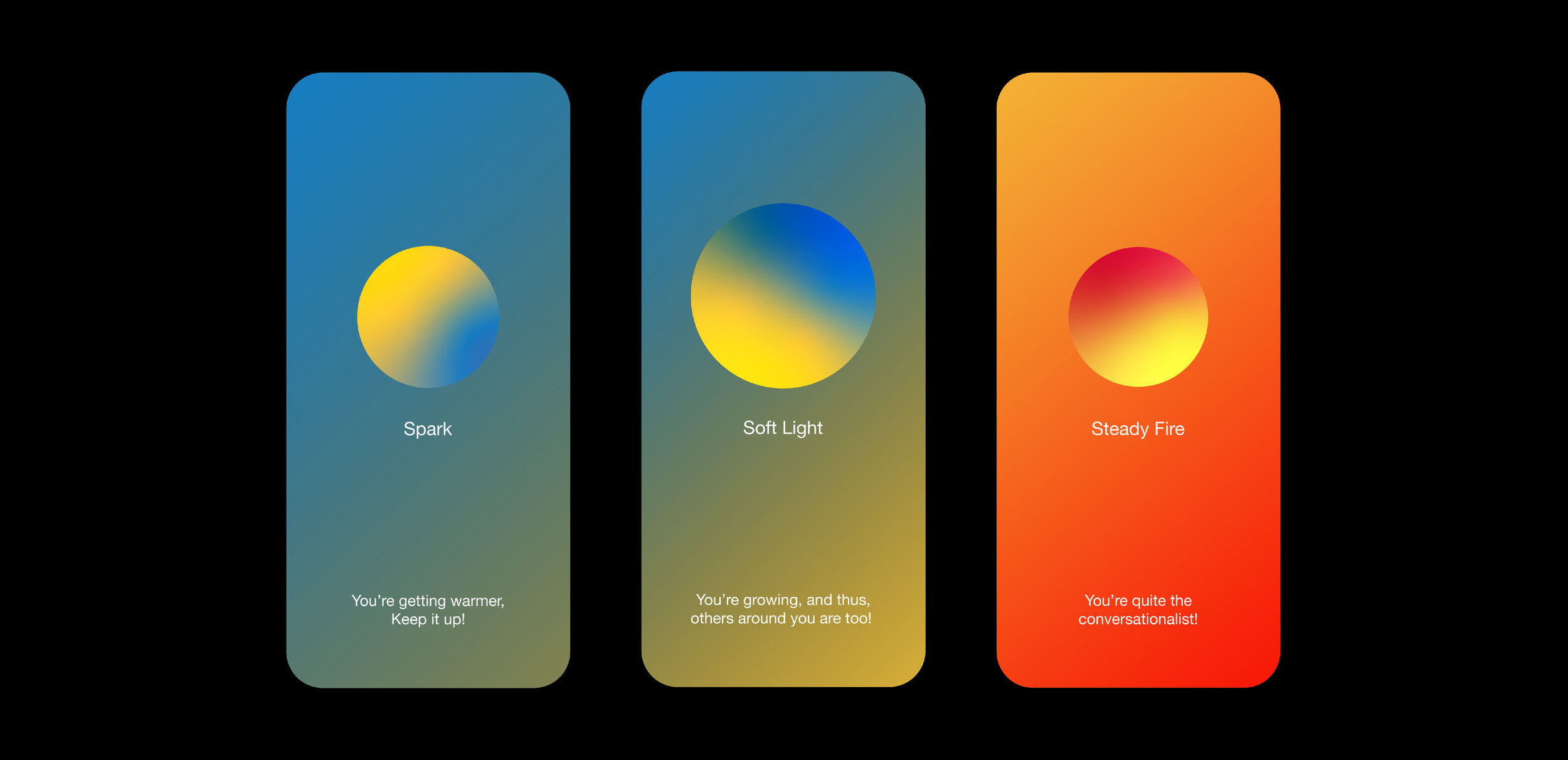
A visual identity fueled by nature and warmth
The foundation for the colors, movement, and feel of the tool are based on the foundational aspects of the campfire. The campfire is one of the most primal ways of intimate communication and sharing among groups of people. It's natural space is what I've tried to channel into the features and looks of Dialog. It conveniently fits well into Instagram's gradient, colorful aesthetic.
The Mark
Simplicity was the move here, when deciding how to symbolize this tool extension. An icon based off of the Instagram logo with a dialog box replacing the iconic camera. The similarity is to show how the tool can co-exist in the app's established user environment.
